Lauren Dawes's Blog, page 26
October 14, 2013
Cover Reveal: The Sorcery Code by Dima Zales
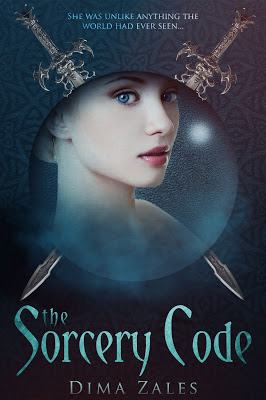 Once a respected member of the Sorcerer Council and now an outcast, Blaise has spent the last year of his life working on a special magical object. The goal is to allow anyone to do magic, not just the sorcerer elite. The outcome of his quest is unlike anything he could’ve ever imagined – because, instead of an object, he creates Her.
Once a respected member of the Sorcerer Council and now an outcast, Blaise has spent the last year of his life working on a special magical object. The goal is to allow anyone to do magic, not just the sorcerer elite. The outcome of his quest is unlike anything he could’ve ever imagined – because, instead of an object, he creates Her.She is Gala, and she is anything but inanimate. Born in the Spell Realm, she is beautiful and highly intelligent – and nobody knows what she’s capable of.
Augusta, a powerful sorceress, sees Blaise’s deed for the ultimate hubris that it is. She still cares for Blaise and wants to save him before he has to pay the ultimate price . . . thanks to the abomination he created.
Want a little taste of The Sorcery Code?...
There was a naked woman on the floor of Blaise’s study.A beautiful naked woman.Stunned, Blaise stared at the gorgeous creature who just appeared out of thin air. She was looking around with a bewildered expression on her face, apparently as shocked to be there as he was to be seeing her. Her wavy blond hair streamed down her back, partially covering a body that appeared to be perfection itself. Blaise tried not to think about that body and to focus on the situation instead. A woman. A She, not an It. Blaise could hardly believe it. Could it be? Could this girl be the Object?She was sitting with her legs folded underneath her, propping herself up with one slim arm. There was something awkward about that pose, as though she didn’t know what to do with her own limbs. In general, despite the curves that marked her a fully grown woman, there was a child-like innocence in the way she sat there, completely unselfconscious and totally unaware of her own appeal.Clearing his throat, Blaise tried to think of what to say. In his wildest dreams, he could’ve never imagined this kind of outcome to the project that had consumed his entire life for the past several months.Hearing the sound, she turned her head to look at him, and Blaise found himself staring into a pair of unusually clear blue eyes.She blinked, then cocked her head to the side, studying him with visible curiosity. Blaise wondered what she was seeing. He hadn’t seen the light of day in weeks, and he wouldn’t be surprised if he looked like a mad sorcerer at this point. There was probably a week’s worth of stubble covering his face, and he knew his dark hair was unbrushed and sticking out in every direction. If he’d known he would be facing a beautiful woman today, he would’ve done a grooming spell in the morning. “Who am I?” she asked, startling Blaise. Her voice was soft and feminine, as alluring as the rest of her. “What is this place?”“You don’t know?” Blaise was glad he finally managed to string together a semi-coherent sentence. “You don’t know who you are or where you are?”She shook her head. “No.”Blaise swallowed. “I see.”“What am I?” she asked again, staring at him with those incredible eyes.“Well,” Blaise said slowly, “if you’re not some cruel prankster or a figment of my imagination, then it’s somewhat difficult to explain . . .”She was watching his mouth as he spoke, and when he stopped, she looked up again, meeting his gaze. “It’s strange,” she said, “hearing words like that in real time. These are the first real words I’ve heard.”Blaise felt a chill go down his spine. Getting up from his chair, he began to pace, trying to keep his eyes off her nude body. He had been expecting something to appear. A magical object, a thing. He just hadn’t known what form that thing would take. A mirror, perhaps, or a lamp. Maybe even something as unusual as the Life Capture Sphere that sat on his desk like a large round diamond. But a person? A female person at that?To be fair, he had been trying to make the object intelligent, to ensure it would have the ability to comprehend human language and convert it into the code. Maybe he shouldn’t be so surprised that the intelligence he invoked took on a human shape.A beautiful, feminine, sensual shape.Focus, Blaise, focus. “Why are you walking like that?” She slowly got to her feet, her movements uncertain and strangely clumsy. “Should I be walking too? Is that how people talk to each other?”Blaise stopped in front of her, doing his best to keep his eyes above her neck. “I’m sorry. I’m not accustomed to naked women in my study.”She ran her hands down her body, as though trying to feel it for the first time. Whatever her intent, Blaise found the gesture extremely erotic.“Is something wrong with the way I look?” she asked. It was such a typically feminine concern that Blaise had to stifle a smile. “Quite the opposite,” he assured her. “You look unimaginably good.” So good, in fact, that he was having trouble concentrating on anything but her delicate curves. She was of medium height, and so perfectly proportioned that she could’ve been used as a sculptor’s template.“Why do I look this way?” A small frown creased her smooth forehead. “What am I?” That last part seemed to be puzzling her the most.Blaise took a deep breath, trying to calm his racing pulse. “I think I can try to venture a guess, but before I do, I want to give you some clothing. Please wait here – I’ll be right back.”And without waiting for her answer, he hurried out of the room.
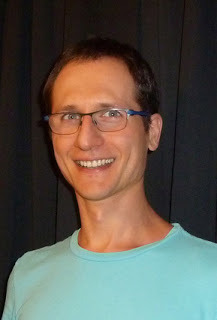 Want to know more about Dima? Dima Zales is a full-time science fiction and fantasy author residing in Palm Coast, Florida. Prior to becoming a writer, he worked in the software development industry in New York as both a programmer and an executive. From high-frequency trading software for big banks to mobile apps for popular magazines, Dima has done it all. In 2013, he left the software industry in order to concentrate on his writing career.
Want to know more about Dima? Dima Zales is a full-time science fiction and fantasy author residing in Palm Coast, Florida. Prior to becoming a writer, he worked in the software development industry in New York as both a programmer and an executive. From high-frequency trading software for big banks to mobile apps for popular magazines, Dima has done it all. In 2013, he left the software industry in order to concentrate on his writing career. Dima holds a Master’s degree in Computer Science from NYU and a dual undergraduate degree in Computer Science / Psychology from Brooklyn College. He also has a number of hobbies and interests, the most unusual of which might be professional-level mentalism. He simulates mind-reading on stage and close-up, and has done shows for corporations, wealthy individuals, and friends.
He is also into healthy eating and fitness, so he should live long enough to finish all the book projects he starts. In fact, he very much hopes to catch the technological advancements that might let him live forever (biologically or otherwise). Aside from that, he also enjoys learning about current and future technologies that might enhance our lives, including artificial intelligence, biofeedback, brain-to-computer interfaces, and brain-enhancing implants.
In addition to his own works, Dima has collaborated on a number of romance novels with his wife, Anna Zaires. The Krinar Chronicles, an erotic science fiction series, has been a bestseller in its categories and has been recognized by the likes of Marie Claire and Woman’s Day. If you like erotic romance with a unique plot, please feel free to check it out, especially since the first book in the series (Close Liaisons) is available for free everywhere. Keep in mind, though, Dima Zales's books are going to be much more PG 13 . . . at least that’s the plan for now.
Anna Zaires is the love of his life and a huge inspiration in every aspect of his writing. She definitely adds her magic touch to anything Dima creates, and the books would not be the same without her. Dima’s fans are strongly encouraged to learn more about Anna and her work at http://www.annazaires.com.
Want to stalk Dima? Website Facebook Goodreads Twitter Linkedin YouTube Blog
Published on October 14, 2013 03:55
October 13, 2013
Interview: Sawyer Bennett (Part 1)
Okay, so I know this isn't anything to do with fantasy, but I absolutely ADORE this author, and she so kindly agreed to grant me an interview and giveaway. Sawyer Bennett is the author of the
Off Series
, as well as two other books called
Forever Young
and
To Catch a Dark Thief
. I have already reviewed her Off Series which you can find here, and I have Forever Young on my TBR and review list.
I sent Sawyer off some questions, and here is what she had to say...
Me: Who is your favourite couple from the Off Series and why?
Sawyer: My favourite couple from the Off Series is Emily and Nix of Off Limits. I just love how broken Nix was and how transformed Emily had become since introducing her in Off Sides. Emily agreed to give him only what he could handle, and in turn, he fell hard for her. He wanted more and didn’t even know it until he lost her. And of course, the way he got her back (yes, we’re talking tattoo magic here), is the most swoon worthy moment I’ve written.
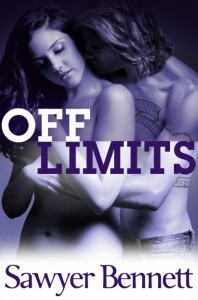
Me: If you could choose one of your male characters to magically come to life from the pages of your books, who would it be, and why?Sawyer: This one is easy...I think it would be Flynn from my upcoming release of Off Chance (due out 10/21/13). He is about as good of a man as you can get. Flynn would just make the world a better place.
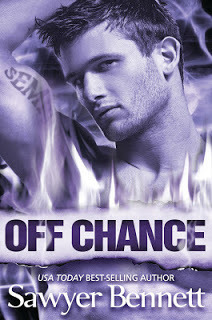
Me: How do you prepare to write? Do you just have an idea, sit down and start typing, or do you plan?Sawyer: I usually start with an idea that I’ve mulled over in my head for a bit. I know the basic premise of the plot, I know where it will start and where it will end. All the stuff in the middle just comes out as I write. It’s a very organic process for me. Sometimes I might plot out the basic ideas for each chapter, but then I just let my imagination take over and spit stuff out.
Me: Are there parts of you, your friends, husband and life in the pages of your books? How much inspiration comes from these sources, and how much is simple fiction? Sawyer: Oh my gosh, I write so much stuff from my own life in my books. Sometimes it feels like cheating since I’m stealing ideas from my life. I couldn’t even begin to tell you all the things in every book that are so “me”, but a few come to mind. Nix’s character is based in part on my ex-husband who was a Force Recon Marine. My dog, Atticus, plays a prominent role in Off Chance. And without giving anything away, there is an entire chapter in Off Chance that is based off a specific scene in my life.

Me: Can you tell us about your experience with becoming a published author?
Sawyer: I thought long and hard when I started writing as to how I wanted to go about being published. I’m not a very patient person, and the ease with which you can self-publish just seemed the best route for me to take. I took a great online course through our local RWA chapter on the mechanics of self-publishing, and I’ve learned a lot about it since then through trial and error. The reasons I like it versus traditional are that I can operate on my own time table, I have complete creative control, and frankly, I think you can generally make more money as a self-published author if you have the fan base.
Me: Can you tell us something about yourself that not many people know?
Sawyer: Hmmmm… let’s see. My first career was that as a trial lawyer. I’m still a majority owner in a law firm here in Raleigh but I’m in the process of selling my interest out so I can write full time. I love being in the courtroom and I think that has helped me be a writer. As a trial lawyer, I have to tell a convincing and entertaining story to the jury. That translates easily to writing as long as I can put the story from my head on paper.
Because I love Sawyer so much, I had a stack of other questions that I asked her. A second post will be coming soon, but in the mean time, here's your chance to enter a giveaway to get your hands on a copy of her upcoming Off Series novel, Off Chance with Flynn as the man to steam up your Kindle.
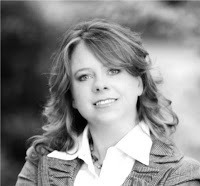 About Sawyer:
About Sawyer:
Sawyer Bennett is the pen name for a snarky southern woman and reformed trial lawyer who decided to finally start putting on paper all of the stories that were floating in her head. She is married to a mobster (well, a market researcher) and they have two big, furry dogs who hog the bed. Sawyer would like to report she doesn’t have many weaknesses but can be bribed with a nominal amount of milk chocolate.
Stalk Sawyer...legallyFacebook TwitterWebsitePinterestBlog
a Rafflecopter giveaway
I sent Sawyer off some questions, and here is what she had to say...
Me: Who is your favourite couple from the Off Series and why?
Sawyer: My favourite couple from the Off Series is Emily and Nix of Off Limits. I just love how broken Nix was and how transformed Emily had become since introducing her in Off Sides. Emily agreed to give him only what he could handle, and in turn, he fell hard for her. He wanted more and didn’t even know it until he lost her. And of course, the way he got her back (yes, we’re talking tattoo magic here), is the most swoon worthy moment I’ve written.

Me: If you could choose one of your male characters to magically come to life from the pages of your books, who would it be, and why?Sawyer: This one is easy...I think it would be Flynn from my upcoming release of Off Chance (due out 10/21/13). He is about as good of a man as you can get. Flynn would just make the world a better place.

Me: How do you prepare to write? Do you just have an idea, sit down and start typing, or do you plan?Sawyer: I usually start with an idea that I’ve mulled over in my head for a bit. I know the basic premise of the plot, I know where it will start and where it will end. All the stuff in the middle just comes out as I write. It’s a very organic process for me. Sometimes I might plot out the basic ideas for each chapter, but then I just let my imagination take over and spit stuff out.
Me: Are there parts of you, your friends, husband and life in the pages of your books? How much inspiration comes from these sources, and how much is simple fiction? Sawyer: Oh my gosh, I write so much stuff from my own life in my books. Sometimes it feels like cheating since I’m stealing ideas from my life. I couldn’t even begin to tell you all the things in every book that are so “me”, but a few come to mind. Nix’s character is based in part on my ex-husband who was a Force Recon Marine. My dog, Atticus, plays a prominent role in Off Chance. And without giving anything away, there is an entire chapter in Off Chance that is based off a specific scene in my life.

Me: Can you tell us about your experience with becoming a published author?
Sawyer: I thought long and hard when I started writing as to how I wanted to go about being published. I’m not a very patient person, and the ease with which you can self-publish just seemed the best route for me to take. I took a great online course through our local RWA chapter on the mechanics of self-publishing, and I’ve learned a lot about it since then through trial and error. The reasons I like it versus traditional are that I can operate on my own time table, I have complete creative control, and frankly, I think you can generally make more money as a self-published author if you have the fan base.
Me: Can you tell us something about yourself that not many people know?
Sawyer: Hmmmm… let’s see. My first career was that as a trial lawyer. I’m still a majority owner in a law firm here in Raleigh but I’m in the process of selling my interest out so I can write full time. I love being in the courtroom and I think that has helped me be a writer. As a trial lawyer, I have to tell a convincing and entertaining story to the jury. That translates easily to writing as long as I can put the story from my head on paper.
Because I love Sawyer so much, I had a stack of other questions that I asked her. A second post will be coming soon, but in the mean time, here's your chance to enter a giveaway to get your hands on a copy of her upcoming Off Series novel, Off Chance with Flynn as the man to steam up your Kindle.
 About Sawyer:
About Sawyer:Sawyer Bennett is the pen name for a snarky southern woman and reformed trial lawyer who decided to finally start putting on paper all of the stories that were floating in her head. She is married to a mobster (well, a market researcher) and they have two big, furry dogs who hog the bed. Sawyer would like to report she doesn’t have many weaknesses but can be bribed with a nominal amount of milk chocolate.
Stalk Sawyer...legallyFacebook TwitterWebsitePinterestBlog
a Rafflecopter giveaway
Published on October 13, 2013 22:37
October 10, 2013
HK Savage Blog Tour
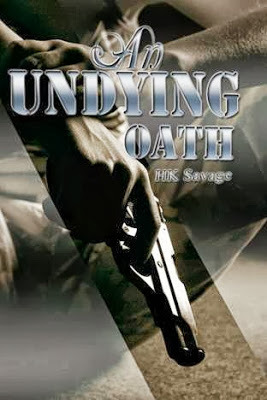
Sergeant Justin Shaw returned from the war with what is left of his unit, though instead of being hailed as heroes, they are being sought as test subjects. Their last mission behind enemy lines to obtain a WMD ended with them exposed and on the run. Their goal is not only to destroy the weapon, but also the program being run by their own government. Justin and his men have sacrificed everything for their mission. Will it be enough?
Samantha James, a girl whose father disappeared almost twenty years ago unwittingly holds the key. When her father returns bodies start to fall. Sam doesn't know who to trust. Both Justin and her father have their own agendas and either one of them could end up with her dead.

Character Bio:
Justin Shaw, born to humble roots, was raised on a small family farm outside Nashville, TN. Working alongside his father in the fields after school and with his uncle in his metal shop when Justin was in high school, he often asked about his family’s time in the service. It was a natural choice to enlist when he turned eighteen. A hard worker and intelligent boy, Justin impressed his superiors. And when they recommended he try for the Rangers, he did. Loyal to a fault, Justin lived for his men. They, in turn, followed him without question and had one of the highest success rates in their missions.
BUY IT HERE:

ADD IT TO YOUR GOODREADS:
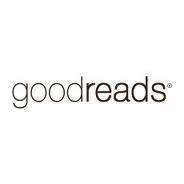 Excerpt:
Excerpt:
“I’ll go with her, Sarge.”
Jimmy hopped out to make room for her to exit. Shaw was already out, landing lightly on the balls of his feet on the opposite side of the door. He moved like a fighter.
Sam had seen a few truly good ones at the gym and at least Shaw was better than any she’d seen before. She would be willing to bet the other two weren’t slouches either.
“No, I will.”
He waited for Sam to take the lead, surveying
the streets for threats. “Hear anything, Jimmy?”
Sam watched Jimmy grab headphones off a hook below the narrow table serving as a desk in the cramped van. He listened for a minute and shook his head.
“Nope. Can’t hear anything but that don’t mean it’s clear.”
They exchanged a look Sam didn’t understand. She considered making a break for it and Shaw closed the distance between them, not touching but his message clear.
Shaw let her open the outer security door leading into the complex then followed her into the building, but put his hand over hers when she slid the key into her lock. She jumped at his warm touch, noting in passing his hands felt calloused but not overly rough. Her eyes went to where their hands were stacked on her door and wondered how many people his hands had broken. How many women has he touched?
Mortified at herself, she dropped her hand and stepped aside to let him open the door. He eased past and held a hand out indicating she should stay behind him. Seeing the way the men worked together and had her covered, Sam pretty much figured it was pointless to stage an escape attempt in her building or try to cry out and involve someone else.
She couldn’t handle any more guilt, and apparently she was having some sort of breakdown brought on by stress. Thus, she was relatively subdued as she followed his silent command though she glared daggers at his well-developed back as he crept into her apartment.
They were a few feet down the hall when Sam heard something tap the bathroom door, making her jump. She spun to face it and before she could do anything else, Shaw had his arm wrapped around her waist pulling her tight up against him with one hand, a gun appearing in his other.
It was so fast she barely had time to recognize what was happening. Just one minute she was facing the bathroom, the next she was staring at a blue tshirt stretched snug over broad shoulders smelling a combination of fabric softener and hot man.
Heart beating wildly, Sam put her hands out to push against his back and peer around him. His muscles were hard under her hands as he turned his head, placing his profile a hand’s breadth from hers. She could see the glints of gold and definitely auburn in the stubble on his jaw. He hadn’t shaved in at least a day.
“Stay close.” He commanded in a whisper, taking his hand from her waist and pushing her back with his body, giving him room to open the door while hugging the wall as tightly as possible.
Frightened enough to listen Sam stayed close, feeling the cool wall behind her. The result was a Sam sandwich. She breathed short, shallow breaths and moved with him. One hand reached out and twisted the knob, shoving it open in one fluid motion.
Into the hall flashed a gray streak, low to the ground and yowling the whole time. Sam saw the gun tracking it and brought her hand down on his forearm, instantly re-aiming the gun’s muzzle at the floor away from its target.
“Wait. It’s Bill,” she cried in a panic. The tension in
his arm eased and she wriggled herself out from behind him to dash after her terrified cat.
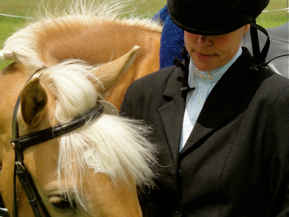
Author Bio:
HK Savage has been a voracious reader of anything she could get her hands on going back to the second grade when she would set her alarm two hours early to read before school. Her passion for the written word has continued and flowed into writing going back nearly as far. Her books have fans in twenty countries on six continents with hopes of attracting attention on Antarctica if for no other reason than to check a box.
Currently, HK is a mother, wife and black belt in Karate as well as an avid dressage rider. Her three dogs: a Doberman puppy and two ancient Doxies keep her busy when she is not writing or working.
HK has been an editor for several newsletters over the years, her favorite being for Heifer International where her ideas were put into effect and complimented by those on high.
Currently her editing skills, honed for nearly a decade in advertising media, have been focused on her peers and clients in the writing world as Founder and Editor in Chief of Staccato Publishing and new digital imprint, Darkest Night Publishing.
Paranormal is a favorite genre as well as science fiction and the possibilities we have not yet realized. Her favorite premise: "what if?"
STALK HK!
WEBSITEGOODREADSFACEBOOKAMAZON
Published on October 10, 2013 07:00
October 8, 2013
Getting Published: Part Two - An Interview with a Publishing Insider
Hello Fellow Junkies,
By now you’ve all see part one of this interview. If you haven’t, read it herenow. In this second part of the interview, I asked my Publishing Insider some more specific questions about both budding authors, and the more experienced indie authors, and how they can go about either getting published traditionally, or how they can improve their presence on social media.
If you’ve found these two posts helpful/informative/interesting/life-changing, feel free to leave me a comment at the bottom of the post.
1. If you’ve just written a novel, how long should you wait before submitting it to an agent or publisher? Should you make sure it’s completely, 100% polished before passing it on, or should it be in its raw form, ready for polishing by a professional team of copy editors and editors?
First impressions are important, you should always submit the best quality manuscript you can. While most Agents or Publishers only require a few chapters to be submitted initially, the entire book should be completed and be as polished as possible. If you can afford to do so, have your manuscript professionally assessed (many writer’s association’s offer this service for a small fee).
The same goes for editing and proofreading, if you can afford to do this, it would be encouraged. It will be re-edited if it is picked up by a Publisher, but often books are restructured and edited many times before they are deemed fit for publication. The main thing is that somebody else has read the manuscript – whether they are in the publishing industry or not - often authors will spend years writing a novel and may be too close to the content to see where changes may be necessary.
2. Are there any ‘for-the-love-of-god-don’t-do-that’ things authors do that you see all the time which prevents them from going any further than a query letter stage?
1. A widely overused (and incredibly irritating) first sentence on a synopsis: “this is the best book you’ll ever read”.
2. Signing off your synopsis: “if you don’t publish my book it’ll be the biggest mistake you’ll ever make in your career”.
3. Don’t send sample covers or artwork unless requested (even if self-published).
4. Don’t submit your manuscript on beer coasters, no matter how amazing your brainstorming session went with your mates at the pub (this doesn’t happen often though, just enough to make us laugh).
3. What’s the usual process once a manuscript has been accepted? How long from query letter to seeing the book on the shelves?
There are generally three factors that determine how long it takes from initial submission to a book in print:
1. Initial review and assessment: it may take up to 3 months to be notified if the publisher will be accepting the manuscript.
2. Contract negotiation: generally 1 month, but this depends on the author or the agent – some negotiations go on for some months.
3. Editing: on average, a manuscript will take 6 months from the time the editor receives it, this includes editing, proofreading and printing. This does depend on how much work the manuscript requires, for example, if the ending needs re-working or a large amount of structural editing is required, this can take about twelve months.
4. If an indie author has previously published, what’s the process if their manuscript is picked up? Are the covers redesigned? Are the books taken off the various platforms and relaunched?
The process may be slightly different for everyone, depending on how established the existing title is, but generally the manuscript is taken in as a “new title”. So the manuscript will be re-edited if necessary, changes may be suggested, the formatting will need to follow the individual publisher’s branding guidelines so this may mean re-typesetting.
Covers are generally the most controversial and often the hardest aspect for authors to relinquish. Covers will be re-designed as there are branding guidelines, logos and font requirements. There are a team of expert designers on hand that know the market really well, so in the end most authors are happy with the final new design.
E-books are generally re-branded and re-launched, often in a new e-book format (whatever the publishing house is using). This is to avoid issues with version control and pricing, as well as to ensure all content meets branding guidelines.
5. What’s the standard contract for an author like, and what are the parameters i.e. is there a certain number of books they have to produce in a set time period, how much are they paid, what’s their royalty percentage and are they obligated to do a certain amount of public appearances?
There isn’t really a “standard” contract. All publishing houses have various templates that are used as a starting point, but all contracts are negotiated based on so many variables that it would be unwise to comment.
I will say that the benefit of going through an agent is that their job is to get the best possible deal for their author. It is very exciting for all parties to sign up a new author – make sure that you take the time to look at all your contractual rights and obligations and query anything that you are unsure of.
6. How important is an author’s presence on social media? Can you offer any advice about how they can use social media more advantageously?
Incredibly important. My advice would be to blog, blog and blog some more.
1. It shows that you are open to using technology and are aware of new publishing trends (as there are a lot of authors that are not open to e-books or an online editing process, if the authors are good enough, we’ll work around it, but it’s always a big plus if authors are already across technology).
2. It showcases your writing ability and ability to create a network of fans. There have been several major titles in the last few years (Fifty Shades of Grey, Wool) that were picked up after a Publisher saw their blog and the amount of interest they had generated.
3. Practice makes perfect – the more you write the better you will become at it. Blogs in particular will show the good writers from the not-so-good-writers, as blogs are generally written quickly, without peer-review and without professional editing - so it is an art to do this well!
Websites are good for showcasing your “author brand”, it need not be expensive or flashy, a simple and easy-to-navigate website is always good to have, whether you have books to showcase or not. In fact, there are some agents that will not look at an un-published author unless they have their own website.
Join relevant online groups and increase your online presence – put your “marketing cap” on – who do you want your book to go out to (either publisher or fan base), what social media avenues would they frequent and what will get you noticed (in a tasteful way…the saying “all publicity is good publicity” is not always true).
Make sure that you list your social media links on your synopsis with your manuscript submission.
7. What advice would you offer to authors who are looking to get published?
1. Review your manuscript as much as possible – it is rare for someone to write a perfect manuscript on first attempt. Review your own work, have others review your work and learn to take criticism constructively, not personally.
2. Network – use social media to boost your profile, join writers groups, go to writers festivals – most authors will go through the traditional agent/publisher route to being published, but there is a lot to be said for being in the right place at the right time.
3. Research your Publisher or Agent – you may be wasting your time just by going to the wrong one. Go to a bookstore or Amazon.com and find books similar to yours – look at the imprint page to see who published the book.
4. Ensure your synopsis is a “must-read” – think of it as a sales pitch – this needs to be a compelling and well-written introduction to your manuscript. This is the first thing that is read when your manuscript is received and if it is poorly written and doesn’t make us want to read more, chances are that your manuscript may not be read, or may not be read past the first few pages.
5. Follow the author submission guidelines as listed on the Publisher’s website. If you are not sure where to find these, call the reception desk to ask – if you do not follow the guidelines, your manuscript will rarely be accepted. This relates to what you need to submit (if it asks for a chapter, do not send the whole book), word count, page layout (double-spaced), delivery method (most publishers now prefer online submissions), whether they will accept unsolicited manuscripts (many publishers are now introducing one-day a month time slots for unsolicited manuscripts to be read directly by a reviewer – these are only accepted between certain time slots, so you have to do your research and get in quick).
6. Be patient and do not give up. Sounds simple in theory, I know - but no matter how many rejection letters you receive, if you believe that you have written something of value that you need to share with the world, don’t give up.
I just want to thank my Publishing Insider so much for granting me this interview. Due to some restrictions from the publishing house they work for, I have been unable to name my source, but rest assured they are from a major publishing house with offices in 41 countries world-wide.
If you’re still interested in pursuing the traditional publishing route, I’d recommend QueryTracker. With this website, you can find agents who represent specific authors or genres. It will also tell you whether unsolicited manuscripts are being accepted, whether they prefer email submissions, or postal submissions and also where they are based in the world.
If you’re an Aussie author, check out the Australian LiteraryAgents Association for information on their members.
And if you’re just starting out on this journey, an amazing query letter is in order. Check out some of these sites for help:
RoniLoren – a national bestselling author of romance novels – has a whole section of her website dedicated to helping authors. For her advice on writing a query letter, click here.PublishingCrawl has a lot of helpful articles about getting published. This one is about writing the perfect one-page synopsis.
Thanks for stopping by and reading this post. If you’d like to add anything, or simply tell me what you thought of the post, you can leave your comments below.
Published on October 08, 2013 07:00
October 3, 2013
Getting Published Part One: An Interview with a Publishing Insider
Hello Fellow Junkies,
As an indie author, I aspire to get my books out there and noticed. Unfortunately, sometimes that's a very hard thing to do. My ultimate goal is to get traditionally published by a huge publishing house, but after many, many...many rejection letters, I've kind of resigned myself to the fact that it's probably not going to happen.
Am I going to let the rejections stop me, though? Hell no! I’ll just keep trying and keep writing. Everyone has to have a dream—a goal they’re working towards—and although it may seem unattainable, I’ll keep writing and I’ll keep submitting to literary agents and publishers because no one has the right to take away someone else’s dreams. It just comes down to how badly you want it.
And I want it.
So, what have I got for you today? Well, if you’re an established indie looking to get published, or maybe just an author new to the scene, you don’t want to miss this two-part interview with a Publishing Insider. I’ve broken this interview down into:
a) General comments about publishing, andb) Advice for authors.
Without further ado, may the mysteries of the publishing universe be revealed…
1. On an average day, how many manuscripts/query letters do you receive from:
a. Agents? A carefully vetted selection (maybe 5 – 10)b. Directly from authors? Hundreds!
And how many of those do you actually investigate further?
The majority of publications that are published are from Agent’s submissions. In terms of unsolicited manuscripts, we publish very few (under 2%).
2. What happens to the manuscripts you’ve passed on? Do they simply go onto a slush pile, or are they destroyed? Is there ever an instance where you’d hang onto a manuscript because you thought there was potential in the idea, but it wasn’t ‘quite there yet’?
These are destroyed or deleted. If a manuscript shows promise we will go back to the author at the time of their initial submission and ask to see a few more chapters, but we don’t generally hold onto submissions.
3. Do you bounce ideas/manuscripts off fellow publishers, or is it a lone decision you make?
Definitely – it is always useful to get another opinion. Although it is a rather lengthy process to get a manuscript to the Publisher, it is just the starting point for us – if we receive a book we think has “legs” we’ll talk about it with the publishing team and obtain buy-in from the sales, marketing and publicity teams. From here we prepare a business case to the executive team in order to receive financial backing before making an offer to the author, so during this process many people in the publishing team are consulted.
4. In the fiction genre, what’s the current trend?
Vampire/Werewolf/Zombie romance and fantasy, erotic fiction (mainly e-books) are the current trends. Fantasy, romance and crime fiction are always the areas where the most manuscripts are received.
5. What’s your prediction for future trends in fiction?
“Farm-lit” to replace “Chick-lit”. (Note: “Farm Lit” = “Chick-lit” but with a tree-change). Perhaps women are mentally moving out of the city, given the rise of books that base their heroine’s lives around homesteads and wine making as opposed to slick city offices and corporate jobs.
6. Is the practice of selling a manuscript to a bigger publishing house common:a. In Australia?b. In the USA?c. In the UK?
I wouldn’t say it is common practice amongst publishers globally. To clarify, Australian publishers will generally only offer a book to the UK or US once it has first been published locally and has been very successful. If book sales and market trends indicate the book will sell well overseas, and the publisher has a partner company overseas, they may offer the rights to be sold by another publisher (this is all covered in an author’s contract).
In some cases, international publishers may approach an Australian publisher to buy the rights, but this is rare, given our population is so much lower than the US or the UK, so our books sales generally reflect this. In non-fiction publishing, publishers may approach partner publishers if they have an un-published book that is good, but will not reach expected books sales if only published locally.
7. What’s one myth about publishing you’d like to debunk?
Most authors are not “overnight sensations”. Not even J.K. Rowling or E.L. James. (And using your initials won’t make you more successful…despite aforementioned example of J.K. Rowling and E.L. James).
8. What’s one truth about publishing people don’t know?
It’s rare to make a living solely as a “book author” in Australia. Many writers freelance non-fiction articles to magazines or work as freelance editors to supplement their income. Successful authors can also be full-time mums who write once their kids are in bed, business professionals who write on the train and retirees who have only just got around to writing that book!
9. What’s the name of your biggest author-superstar at the moment?
For fiction, Hannah Kent (Burial Rites). Non-fiction is high on the best-sellers list this year with Sarah Wilson (I Quit Sugar) and Hugh Mackay (The Good Life) both incredibly successful this year (in fact, I actually bought 3 copies of Sarah’s book I liked it so much – yes, Publisher’s still buy books occasionally…).
10. In your opinion is the self-publishing revolution hurting the traditional publishing industry? Why/why not?
No, I personally encourage it as there is a place for both. There are a lot of good books that we can’t publish and avenues such as Amazon.com or Spunk Press (www.spunk.org) are a great way of getting your work published. There are pros and cons to both types of publishing avenues.
The benefit to traditional publishing is the distribution agreements we have with bookstores and other sales channels, which self-publishers rarely have access to, as well as teams of marketing and promotional professionals – this ultimately results in more sales than self-publishers can generate on their own.
Publishers also pay the upfront costs for publishing the text, which can be very expensive once you take into account editing, permissions, typesetting, artwork, printing and advertising. Given this, we ask that authors “sell” us their content in return for a royalty agreement, which means they do not have complete ownership of the final product.
This arrangement doesn’t suit everyone, and for those that prefer to be completely independent and have the means to publish their own book (as e-books and print-on-demand systems are making this much more accessible) then self-publishing is a good option to look at.
I think “free” publications are more damaging to the traditional publishing industry than the issue of whether a book is self-published or not. When e-books were first released many self-published books were able to be downloaded for free or at a very nominal cost, as a quick way for authors to get their name and content in the public arena.
This (in conjunction with free Google-searches, free-YouTube clips and free news) has meant that readers have come to expect that if content is online it should be free or very inexpensive. While there is not the printing cost associated with e-books, there are still many expenses that need to be covered – editing, proof-reading, typesetting, fees for e-book conversion, Amazon (or similar) fees, author royalties, advertising costs – this means that if a publisher is to sell an e-book for $5, instead of $20 for a print copy, we need to sell twice as many copies to meet costs and sales expectations.
We don’t necessary sell twice as many books just because it is cheaper, which means that it is getting harder to meet all our costs. This leads to us being able to take less “risks” with publishing – so it is much safer for us to publish established authors – which further increases the gap for good, yet unpublished authors, who may find self-publishing a quicker route to being published.
11. What is more prestigious, being an indie author, or a traditionally published author?
Well, as a Publisher, I’m obviously slightly biased towards traditional publishing. Do I think that there is the prestige attached to publishing houses that there was twenty years ago? No. With more ways to publish content globally there are a lot of good authors out there that can still be good authors without the help of publishers.
In saying that, I still believe there is prestige in having a publisher’s logo on your book – not only for the numerous prestigious writing awards that offer great incentives (which many self-published books aren’t eligible for) - but the logo shows others that you’ve done the hard yards, passed through the agents, the reviewers, the publishers, the editors and the thousands of other books that get rejected each year – to have your own professionally published book. I still believe there is merit in that.
12. Finish this sentence: The future of publishing is…online. Print books are far from dead, but publishing is increasingly about embracing new technology and looking at new ways of presenting information to the rest of the world.
Stay tuned for part two of this interview which covers thePublisher's advice to authors!
Published on October 03, 2013 22:56
Coming soon!
I'm going to have a one-on-one interview with a publishing insider featuring on my blog very soon. Stay tuned #indieauthors
— Lauren Dawes (@officialldawes) October 3, 2013
Published on October 03, 2013 00:52
September 22, 2013
Writing Slumps: they sound fun, but...
 www.readybuzz.com ...My name is Lauren and I have a problem. <sighs, staring longingly at the keyboard of my computer> It's been 52 days since my last surge of inspiration. I've given into procrastination too many times to count, and I need help...
www.readybuzz.com ...My name is Lauren and I have a problem. <sighs, staring longingly at the keyboard of my computer> It's been 52 days since my last surge of inspiration. I've given into procrastination too many times to count, and I need help...That's why I'd say if there was an AA-type program for what I'm going through right now. WRITER'S BLOCK. It's the suckiest thing that ever sucked, and right now, I'm under its spell. So, what to do? I know I should be writing. I have not only one, but TWO books planned out and ready to go, but neither the drive, nor the inclination, to write.
pro·cras
 ti·na
ti·na tion n.The act of procrastinating; putting off or delaying or deferring an action to a later time.
tion n.The act of procrastinating; putting off or delaying or deferring an action to a later time.I'm an author (at least part time). I should be writing. I should be dreaming about writing while I'm busy at work. I should be thinking about 24/7, but the unfortunate reality is that I'm not. Perhaps I've used up all my creative energy for this year - pretty disappointing considering I've only written two books, and it's only September.
I need to justify only working casually. I need to be writing. So, what to do? If anyone has any suggestions, I'd love to hear them! In the meantime, I'm throwing myself into reading and reviewing more, and branching out by getting involved in blog tours with an entirely new group of people.
I must admit, I really like reviewing. I had to start another blog, something separate from this one where I could review Contemporary Romance books and not feel silly posting them onto a blog clearly focusing on violence and the fantasy genre. With that in mind, I started up my new blog Between the Lines to help get over the writer's block.
I really hope it works. I'm going a little crazy knowing that I should be producing work when I'm not. I also started designing more and more swag on Photoshop, finding that creative outlet somewhat better than the drowning black abyss of writer's block. <sigh> Wish me luck, I guess...
Published on September 22, 2013 21:24
September 17, 2013
I think I may have been rambling in this one, but I swear it's about Street Teams
Published on September 17, 2013 05:33
September 15, 2013
Muse??! Where are you??
Hello fellow Junkies,
So, I’ve made a decision not to publish the dystopian novel I’d been working on for the past couple of months. I’ve not been feeling it at all. Despite it being story-boarded and planned, I have not been able to write more than 5 chapters of the story. In the meantime, if you’d like to read the first chapter of “2052” (working title), you can on wattpad. I’d love to know what you think of it so far, and when I find the will to write some more, I will, but at the moment Dark Desire is my main focus. I had had a plan to write and publish three books this year, but with this slump in creativity, I don’t think it’s going to be happening. Writing and publishing two books in a year is a pretty good achievement though. I may not be as prolific as other authors out there, but I’d like to think that I’ve got quality and professionalism on my side.
Leave me a comment on wattpad if you’d like to see some more. If I can get 10 ‘yeses’ to see more, I’ll post the second chapter.
Published on September 15, 2013 17:09
September 12, 2013
American English v.s. British English: The Ludicrously Ludicrous
Hello fellow Junkies,
As you may know, I’m an Australian author, which means that I would—naturally—use British English (BrE) spelling conventions. But I discovered that a lot of my readership are actually American and that got me thinking.
Before this light-bulb moment, I admittedly used some American English (AmE) spelling conventions in my books, and that was simply for the aesthetic value. I finally made my decision to actively start using AmE spelling when writing Dark Deceit, after all the book was set in Boston, so why not have American spelling?
That was where things got a little tricky. It was all well and good to say that I was going to use AmE, but I had no idea there were so many little rules and tricks I had to know.
The first, and major one, is the use of ‘u’ in BrE in words like colour, behaviour, neighbour, neighbourhood, flavour, colour, honour, rumour, labour and favour just to name a few.
Another is the past tense forms of some words. In AmE, it’s sneaked not snuck, drugnot dragged, dove not doved, and gotten rather than got.
Then it’s the double consonants: dialed rather than dialled, traveled rather than travelled and my all-time favourite/favorite and most prolific in Dark Deceit: worshiped…with one ‘p’. It still looks really strange to me.
Spelling differences also came up. Story in place of storey when talking about a multi-level building, tire and tyre, plow rather than plough, fetus rather than foetus, center in place of centre, pried instead of prised and cozy v.s. cosy.
I'm kind of ignoring the 's' v.s. 'z' spelling differences, but some that I encountered included:organise/organizerecognise/recognizerealise/realize agonised/agonizedapologise/apologizefinalise/finalize
And lastly, we have completely different words for things. Here we have…
 The 'hood' (AmE) is pictured here, not the 'bonnet' (BrE)
The 'hood' (AmE) is pictured here, not the 'bonnet' (BrE)
 This is a 'trunk' (AmE), whereas in BrE, it's a 'boot'
This is a 'trunk' (AmE), whereas in BrE, it's a 'boot'
 The back of this truck is called a 'bed' in AmE, but a 'tray' in BrE/Australian English
The back of this truck is called a 'bed' in AmE, but a 'tray' in BrE/Australian English
So, that's where I'll leave my little mystifying rant about the differences between British and American English spelling. I don't want to point the finger at anyone in particular for this, but Noah Webster, I blame you.
P.S. For a really extensive list of spelling difference, click here
As you may know, I’m an Australian author, which means that I would—naturally—use British English (BrE) spelling conventions. But I discovered that a lot of my readership are actually American and that got me thinking.
Before this light-bulb moment, I admittedly used some American English (AmE) spelling conventions in my books, and that was simply for the aesthetic value. I finally made my decision to actively start using AmE spelling when writing Dark Deceit, after all the book was set in Boston, so why not have American spelling?
That was where things got a little tricky. It was all well and good to say that I was going to use AmE, but I had no idea there were so many little rules and tricks I had to know.
The first, and major one, is the use of ‘u’ in BrE in words like colour, behaviour, neighbour, neighbourhood, flavour, colour, honour, rumour, labour and favour just to name a few.
Another is the past tense forms of some words. In AmE, it’s sneaked not snuck, drugnot dragged, dove not doved, and gotten rather than got.
Then it’s the double consonants: dialed rather than dialled, traveled rather than travelled and my all-time favourite/favorite and most prolific in Dark Deceit: worshiped…with one ‘p’. It still looks really strange to me.
Spelling differences also came up. Story in place of storey when talking about a multi-level building, tire and tyre, plow rather than plough, fetus rather than foetus, center in place of centre, pried instead of prised and cozy v.s. cosy.
I'm kind of ignoring the 's' v.s. 'z' spelling differences, but some that I encountered included:organise/organizerecognise/recognizerealise/realize agonised/agonizedapologise/apologizefinalise/finalize
And lastly, we have completely different words for things. Here we have…
 The 'hood' (AmE) is pictured here, not the 'bonnet' (BrE)
The 'hood' (AmE) is pictured here, not the 'bonnet' (BrE) This is a 'trunk' (AmE), whereas in BrE, it's a 'boot'
This is a 'trunk' (AmE), whereas in BrE, it's a 'boot' The back of this truck is called a 'bed' in AmE, but a 'tray' in BrE/Australian English
The back of this truck is called a 'bed' in AmE, but a 'tray' in BrE/Australian EnglishSo, that's where I'll leave my little mystifying rant about the differences between British and American English spelling. I don't want to point the finger at anyone in particular for this, but Noah Webster, I blame you.
P.S. For a really extensive list of spelling difference, click here
Published on September 12, 2013 00:53



